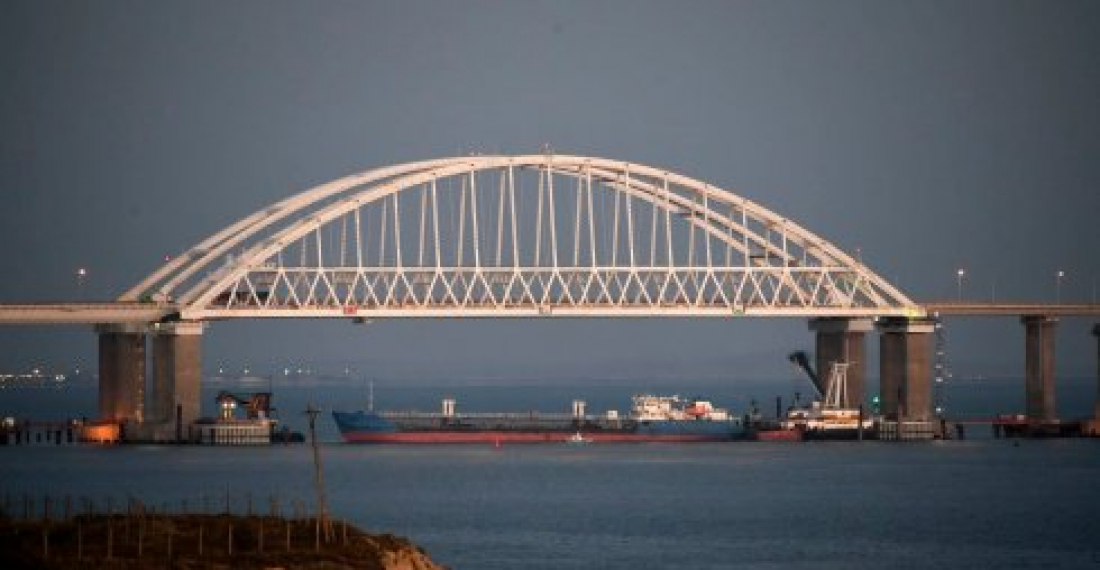Ukraine is set to declare martial law today after a sharp increase in tensions with Russia following incidents in the Sea of Azov.
On Sunday morning, Ukraine's Berdyansk and Nikopol gunboats, and the Yana Kapa tug, tried to sail from the Black Sea port of Odessa to Mariupol in the Sea of Azov, which is shared between the two countries.
Ukraine says the Russians tried to intercept the ships, ramming the tug.
The vessels continued towards the Kerch Strait, the only access to the Sea of Azov, but were blocked by a tanker placed under the Kerch bridge.
Russia built the bridge, that links mainland Russia to Crimea, earlier this year, despite opposition from Ukraine.
On Sunday, Russia also scrambled two fighter jets and two helicopters to the area. It accused the ships of illegally entering its waters and said traffic had been suspended for security reasons.
The Ukrainian navy later said the boats had been hit and disabled as they tried to leave the area. It said six crew members had been injured.
In a statement issued on Sunday evening the spokesperson for the European Union's External Action Service called on Russia to restore freedom of passage at the Kerch strait.
The statement said:
"The tensions in the Azov Sea and Kerch Strait have increased dangerously today, after an incident this morning between Russian and Ukrainian naval vessels as the latter were attempting to pass through the Kerch strait as well as subsequent developments, including the closure of the strait for traffic by Russian authorities and reported seizures of Ukrainian vessels and shots being fired at them.
We expect Russia to restore freedom of passage at the Kerch strait and urge all to act with utmost restraint to de-escalate the situation immediately.
As clearly stated by the High Representative at the European Parliament recently, the events in the Sea of Azov are a demonstration of how instability and tensions are bound to rise when the basic rules of international cooperation are disregarded. The construction of the Kerch Bridge took place without Ukraine's consent and constitutes another violation of Ukraine's sovereignty and territorial integrity. It has led, in parallel with the militarisation of the Azov Sea, to tougher controls on naval traffic in the strait. The European Union expects Russia to stop the inspections.
The EU does not and will not recognise the illegal annexation of the Crimean peninsula by Russia."
source: commonspace.eu with agencies






